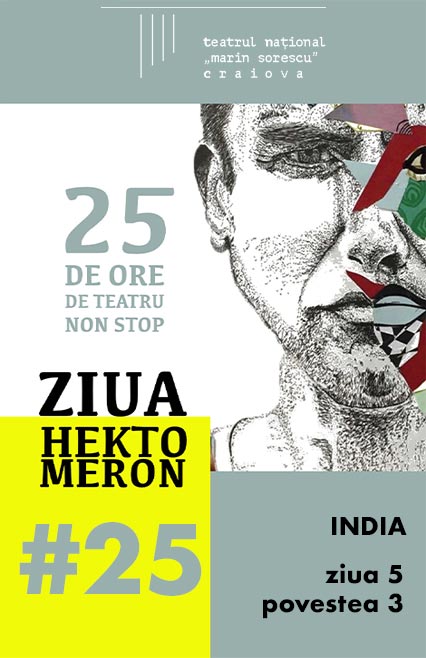Regizor:Pramod Chavan
Chavan Pramod is a dramaturge and theatre director specialized in Sanskrit Theatre, Indian Theatre and Natyashastra. He is a disciple of internationally acclaimed Theatre Director Guru Kavalam N. Panikkar, Sopanam, Kerala. He has undergone basic training of Kutiyattam – Traditional Sanskrit Theatre of Kerala at Kalamandalam and worked in-depth on different art forms of Kerala. He has done Ph.D. (Kutiyattam – Natyashastra – Sanskrit Theatre), Masters and Bachelors in Theatre Arts with four Gold Medals from the Department of Dramatics, Faculty of Performing Arts, The M. S. University of Baroda.
Chavan Pramod was selected for the Suzuki Method Training Program under Theatre Director Suzuki Tadashi, SCOT – Japan and International Training Program of Chinese Peking Opera Theatre at Shanghai Theatre Academy – China. He has received Korean Arts and Cultural Fellowship from Ministry of Culture, South Korea. In addition, he has selected for the ETC Artist Residency Programme initiated by the ETC and participated in the creative team of the production of The Cousin Shakespeare at the “Marin Sorescu” National Theatre, Craiova, Romania.
Dr. Chavan Pramod R. is recipient of Sangeet Natak Akademi Ustad Bismillah Khan Award for outstanding contribution in the field of Theatre Direction which is a National award given By National Academy of Music Dance and Drama, Ministry of Culture, Government of India. Dr. Chavan Pramod R. is currently working as an Assistant Professor in the Department of Dramatics, Faculty of Performing Arts, The Maharaja Sayajirao University of Baroda.
Some of the plays designed and directed by him are Andhayug, Uttararmcharitam, Venisamhara, Ashadh Ka Ek Din, Waiting for Godot, Vikramorvashiyam’s 4th Act, Ashwatthama, Dak Ghar, Juloos, Hayavadan etc.
His plays focuses solely on the Thematic Content of the Play, rather than abiding by the Conventional Structure; it attempts to look beyond the barriers of time and space. Pertaining to Thematic Content, the performance emerges more subtly, symbolically and suggestively into a stylized form.
The plays majorly focus on raising the questions regarding the human tolerance and atrocities of war, where women, children and youth play the major victims. When will the world be peaceful? – this is a quintessential quest. He attempts to depict how system drives a region and its inhabitants into a mist of insoluble problems of restless society and political turmoil, where the soul sufferers are the common people.

